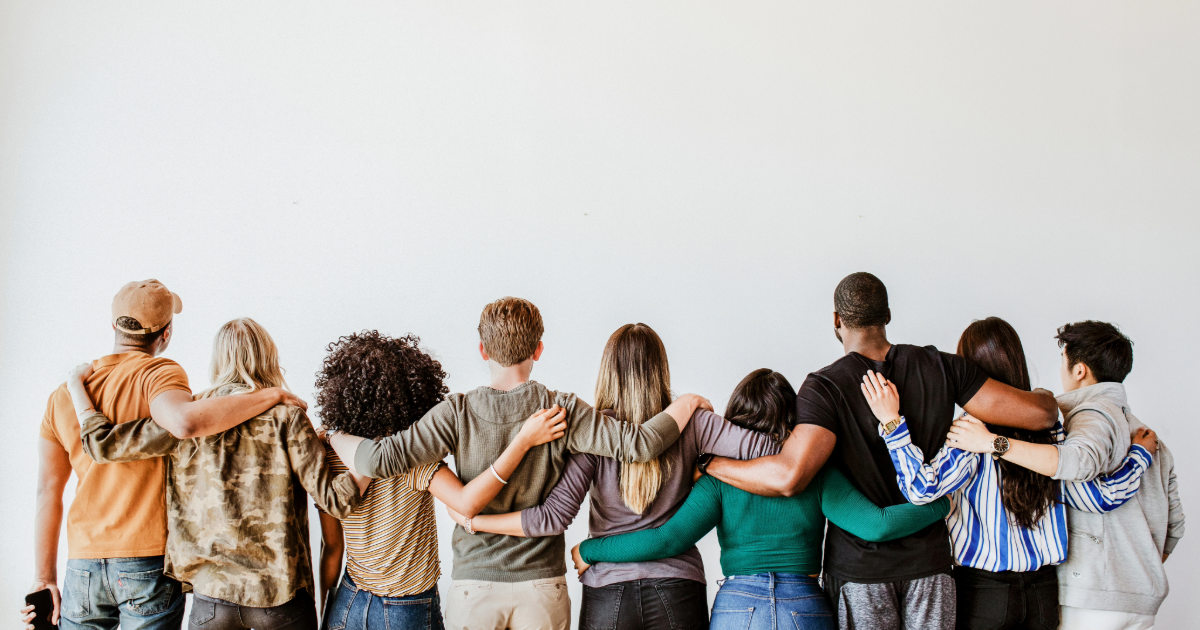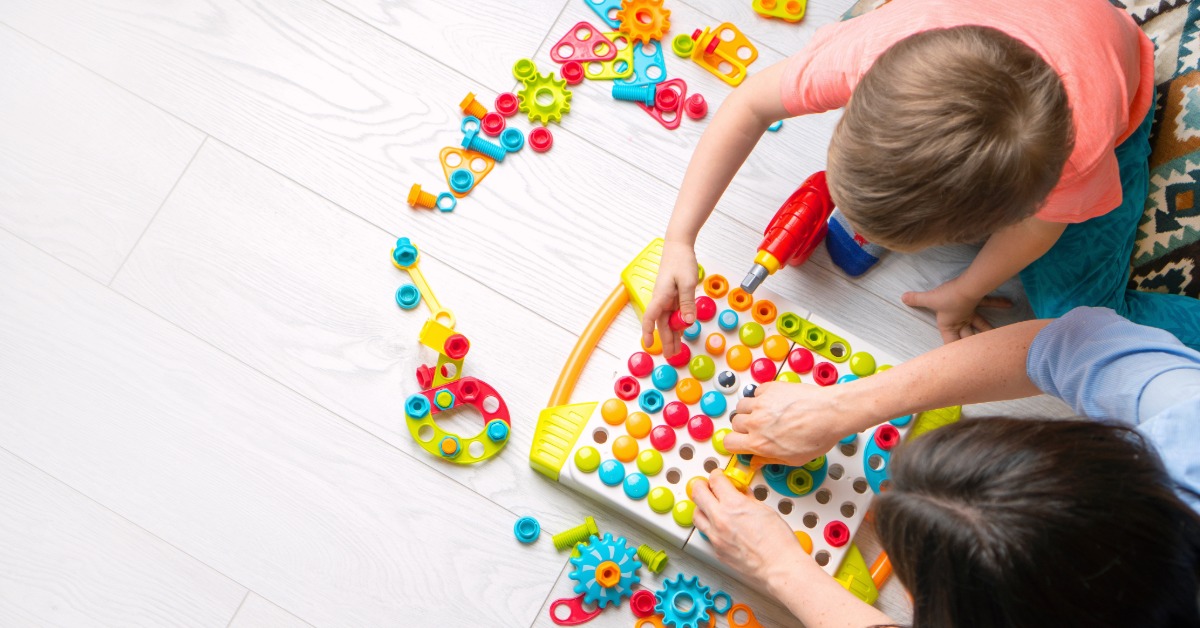12 ways to show life-affirming acceptance of autistic people this World Autism Awareness Day

April 2 is World Autism Awareness Day and it marks the beginning of Autism Awareness/Acceptance Month.
This year’s theme and discussion, as shared by the UN, centres around the ‘role of neurodiversity in shaping policies that promote accessibility, equality, and innovation across multiple sectors’. We can expect to see discussions around inclusive healthcare, education, workplace accessibility and autism-friendly design practice.
As an autistic person, I feel the role neurodivergent people hold in these discussions is critical – nothing about us without us. Our direct lived experience holds the key to our inclusive future and that of those who come after us.
I also feel that for these discussions to be impactful, it’s important to take a holistic approach and ensure the foundational understanding underpinning them is also in the right place.
True inclusion is built on a sense of belonging and you can’t belong without first being accepted as your full authentic self. All the policies, guidelines and practices in the world won’t do a thing to advance the human experience of being autistic in a neurotypical-majority world without a significant societal mindset shift towards autism acceptance.
We as a society have not yet achieved a solid and consistent level acceptance in the autism space, but I know we can get there.
Hearts, minds and intentions are largely in the right places. Awareness, education, services and understanding have come a long way in the almost-ten years since my late diagnosis at the age of 29.
We need to continue working together towards a stage where being autistic is accepted as the completely natural and ordinary variation on the human brain that it is.
In the spirit of the practical action-oriented nature of this year’s discussion theme, here are 12 ways – in no particular order – non-autistic people can show their positive life-affirming acceptance of autistic minds in the community.
1. Let go of the stereotypes
There is a significant breadth and depth to the diversity dimensions and intersectionality that exists within the autistic community, and it’s not well represented in media and public spheres just yet. The reality is, we’re just like non-autistic people – we could be anyone. Autistic people exist in all professions, at all levels, in all cultures, all around the world.
2. Avoid the super power narrative
It might seem positive and uplifting, but unfortunately nothing validates the underlying societal belief that autism is ‘bad’ like the super power narrative. We need to move away from this defensive approach of attempting to counter the stigma around autism by offering up ‘positives’ for multiple reasons. It ties the worth of autistic people to our productivity or ‘value’ to society which is inherently ableist. The super power narrative places unrealistic expectations on autistic people and causes stress for us because the vast majority of us are regular, ordinary people just living our lives – just like you. We should be free to be as mediocre as we like – autistic people have nothing to make up for and we don’t owe society extraordinary ability. We need to talk more about how autism is a completely ordinary variation on the human experience. It’s neither bad nor good, it just is.
3. Please stop saying autistic people who are open about their identity are ‘brave’ or ‘inspirational’
This one always feels pretty gross to me because much like the previous point, it validates the thinking that autism is ‘bad’ and ‘unwelcome’ in society. I’m not brave, I’m just a person living her life. We don’t exist to make non-autistic people better people and we’re not walking teachable moments or human learning curves. We advocate for autism acceptance because we want things to change. We want to work with everyone else to bring about a world where we can be safe and accepted to exist as our full authentic selves.
4. View communication as a two-way street
Milton’s Double Empathy problem posits that instead of misunderstandings resulting from autistic people being different from neurotypical people, it’s actually a case of two groups of people not understanding each other. Essentially, there is no ‘normal’ or ‘standard’ way of being a human being. We’re all existing on a two-way street of communication and empathy, and we all need to meet each other in the middle.
5. Create space for autistic joy to exist without judgement
When I experience joy in public, it tends to look a little different from what most people expect. I’m told I’m much more animated than others, I’m louder, I kind of skip when I walk, and I flap my hands without realising. Sometimes people stare, laugh at me and/or make rude comments. This turns a happy moment into one of embarrassment and shame for me. There’s no reason for it to be this way. You can either choose to leave us be and say nothing or you can smile and join in on our joy. I once involuntarily squealed rather loudly with delight over finding a pair of Care Bears trackpants for my daughter on a department store sale rack. All the other parents around me joined in my excitement by cheering and congratulating me on my amazing find! It was beautiful.
6. Understand that inclusive language practice is unique to the individual
If you want to know how to inclusively refer to an autistic person, just ask the person. You might say to me “Hey Ash, what’s the most inclusive way for me to refer to your autism” and I would reply with “Thanks for asking, I really appreciate it. I use identity first language which means I say ‘autistic person’ when talking about myself – and that’s why I’ve used it in this article. I also identify as ‘disabled’ under the social model of disability.” Ideally, you would close the conversation with something positive and affirming like “Thanks for letting me know, I’ll be sure to use that language in reference to you and if I ever get it wrong, please feel free to correct me”. Easy peasy. All individual language choices are valid.
7. Honour autistic special interests
A common autistic trait that many autistic people share – but not all of us – is what is sometimes known as ‘special interests’. When we find a topic that interests us, sometimes we learn absolutely everything we can about it in a rather deep and detailed way. It’s often viewed by non-autistic people as some kind of strange quirk. I’d love to see the community at-large honour our special interests and view them for what they are: deep, specialised subject matter expertise that offers genuine value to the community. We’re not weird, we’re committed and interested. This isn’t about countering negativity as I mentioned earlier, it’s about seeing things for what they genuinely are.
8. Respond inclusively to disclosures
When an autistic person discloses their autism to a non-autistic person, the conversation can get awkward really quickly, but it doesn’t have to be like this. I think non-autistic people just don’t know what to say and the significant stigma surrounding autism doesn’t help either. The most positive and neuroaffirming response you can provide is “Thanks for letting me know. Is there anything I can do to better enable you to be your full authentic self around me?” This tells us that you accept us as we are and are willing to do your part in the relationship to meet us halfway. It tells us you care about and value the relationship.
9. Respond openly to access and accommodation requests
A very long time ago, I worked with someone who felt autistic people needed to conform to neurotypical standards of ‘normal’ rather than be supported to exist authentically. When I accidentally interrupted them one too many times, they told me I needed to ‘work on it’ because in their words, “the whole world shouldn’t have to change to suit you”. I wasn’t asking for the whole world. I was gently educating them and asking one person to give me a little grace in conversations where I found myself unable to identify whose turn it was to speak due to the way my brain developed. I was asking them to create space for me to participate in our collaborative discussion. Try to avoid thinking of access and accommodation requests as ‘special treatment’. Reframe the conversation to be one centred on equitable participation and access. Every single human being is unique. We all need different things to thrive, access and equally participate in collaborative environments.
10. Understand that autism is a dynamic difference
My ability to perform a task one day is not a reliable predictor for my ability to perform it again in the future. My brain absorbs an enormous amount of information that non-autistic brains may be able to filter out and/or ignore. Sounds, lights, conversations in other rooms, cars on the road three streets away, appliances, temperature changes, textures, scents and much more exist in my days like main characters. This is all on top of simply being alive and interacting with the world. Some of these things boost my energy like beautiful textures and metal objects that spin and some of these things fatigue me like fluorescent lighting and the air conditioner that seems to have an awful lot to say. Taking things one day at a time and learning how to be kinder to myself has really helped me learn how to accept this about myself. I think the autistic people in your life would love that from you too. Assume competence but be ready to offer reassurance when it doesn’t quite work out that day.
11. Ask your autism-related questions in a neuroaffirming way
Questions are always welcome! I completely understand and support your curiosity. It’s how you ask (and listen to my answer) that has the most positive impact. The key is to ask questions that are open but also unambiguous and specific in scope. Here are some great examples of how to do that:
- Can you tell me more about how your sensory experiences affect your day?
- How do you feel about being autistic?
- How do you process information best? And how can I better support you?
- Can we talk through our unique ways of working and discuss how we can both meet each other halfway?
- Are your sensory/information/energy needs being met today? Is there anything I can do to better support you in bringing your whole self to this relationship/environment?
- How many spoons do you have left today? (Read more about Spoon Theory)
- How might we make this event more accessible to autistic people?
12. Be actively anti-ableist
I still hear people refer to ableism as a bit of a buzzword and it always reminds me of just how important these conversations are. Ableism is the disability version of sexism and racism etc. Ableism is the systemic discrimination, prejudice and oppression of disabled people. I’ve always found ableism to be ‘anti-human’ because while autism is a neurological developmental difference we’re born with, you can still join the disability community at any stage of your life. If you’re lucky enough to live into old age, you’re just about guaranteed entry.
Practice positive anti-ableism in the following ways:
- Have conversations about accessibility as part of your early planning and design processes – not as a late-stage after thought. Write documents accessibly from the first draft – i.e. don’t view it as something to be added in later. Accessible by default.
- Call out all ableist behaviours and narratives when you see them. Don’t turn away and don’t walk past it.
- Support inclusive brands and disability-owned small businesses.
- Take ownership of your disability and autism inclusion education. Follow autistic content creators and engage with their work. Read books written by people with direct lived experience. Google every new term you hear. Share the mental load of advocacy.
- If you make a mistake, don’t be too hard on yourself. Learn from it and try again.
Happy World Autism Acceptance Day!


